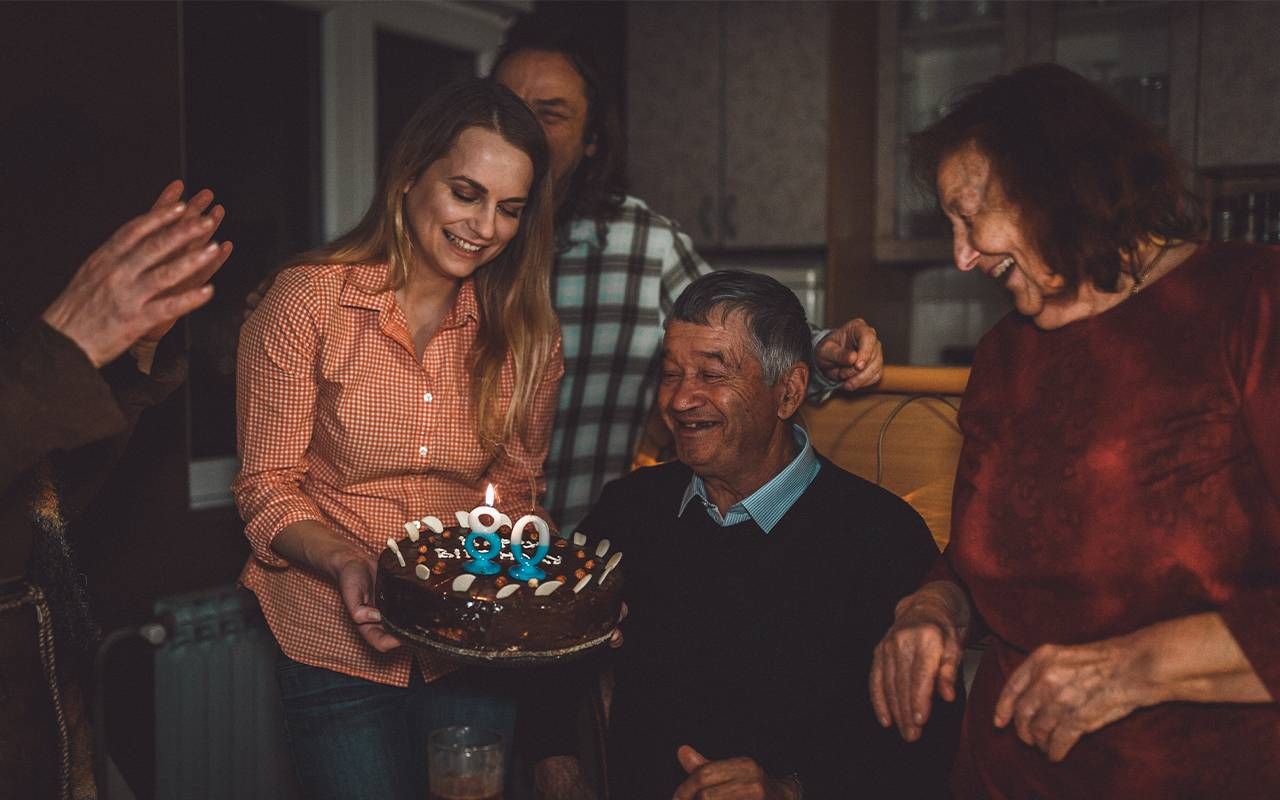Is Living to 100 All It's Cracked Up to Be?
An expert says we should aim for a 'bold but common-sense national goal' of adding 'a decade of healthy birthdays after retirement age'
On the day that Erma S. blew out the candles on her fiftieth birthday cake her life wasn't even half over. (At her request, we are not using her last name.)
Most Americans can expect to live 25 or even 30 years beyond the half-century mark, but the 102-year-old Colorado native suspected she would live well beyond that. She had longevity in her family.

"My mother and her sisters all lived into their 90s," she wrote in a snail-mailed letter to me, "so it was not a surprise that I might live that long."
Still, even as Erma moved from late middle age into old age, she anticipated the loss of contemporaries — her husband and several friends — but she didn't expect to endure the devastating deaths of a daughter-in-law and a granddaughter.
"My mother and her sisters all lived into their 90s, so it was not a surprise that I might live that long."
"Those were difficult times," she wrote. "I believe you take it the best you can at the time but it was hard losing them and I miss them."
Erma also misses her independence. Both her hearing and her vision are greatly diminished and she says it makes daily life "much more difficult." Still, her days are punctuated by visits with family and friends, and she is grateful to have lived long enough to watch her great-grandkids grow up.
Erma S. is part of a remarkable transformation in the demography of this country. She is at the vanguard of a wave of 85+ year-old Americans who will number close to 20 million in the next 40 years.
And the Census Bureau projects that among those millions of late-age older adults will be at least 500,000 people who are 100 years old or older.
Will most of those "senior" seniors be flourishing? Or will they be mired in ill health with chronic conditions and preventable disease?
Health Span vs. Age Span
Bellevue Hospital physician Dave Choshki asserted in a September New York Times op-ed that Americans need to focus on a longer health span; the years of good health, rather than reaching some arbitrary age.
The average American "can expect to celebrate only a single birthday in good health after the traditional retirement age of 65."
He writes that global health estimates reveal that the average American "can expect to celebrate only a single birthday in good health after the traditional retirement age of 65." The metrics for the Japanese, Costa Ricans and Australians, for instance, project an average of a health span that reaches 70 years old.
Instead, Choshki suggests, the United States should aim "for a bold but common-sense national goal" of adding "a decade of healthy birthdays after retirement age."
Former Associated Press journalist (and grandson of a super-ager who lived to be 104) William J. Kole agrees. The author of a new book about centenarians, he said in an interview, "Any discussion of long life span has to be paired with a discussion of health span."
Kole's book, titled "The Big 100: The New World of Super-Aging," profiles late-agers like Jane Goodall who tells Kole, "Aging hasn't worried me, and death itself holds no fear for me at all."
But I found "The Big 100" most intriguing when it delved into the scientific research of why a relatively few (but increasing number) of people live to be very old.
The 'Escapists'
Dr. Thomas Perls directs the New England Centenarian Study. He told Kole that DNA and genetic markers associated with heart disease, diabetes, Alzheimer's and cancer seem to play a pivotal role in reaching 100 and beyond.
"The older you get, the healthier you've been."
He calls the centenarians who have eluded all age-related diseases "escapists." Fifteen percent of people who live to 100 fall into this category. But there are a significant number of centenarians who have succumbed to cancer or heart disease earlier in their lives and survived it and who go on to live another ten or twenty years.
"The older you get, the healthier you've been," Perls says.
Which is why Kole, who spent fifteen years smoking, working long hours and eating too much, took up marathon running. He is making up for lost time.
When I ask him about the ignominy of having written about centenarians and then expiring before his 100th birthday, he laughs.
"Having written the book, I'm now obligated to live to 100."


